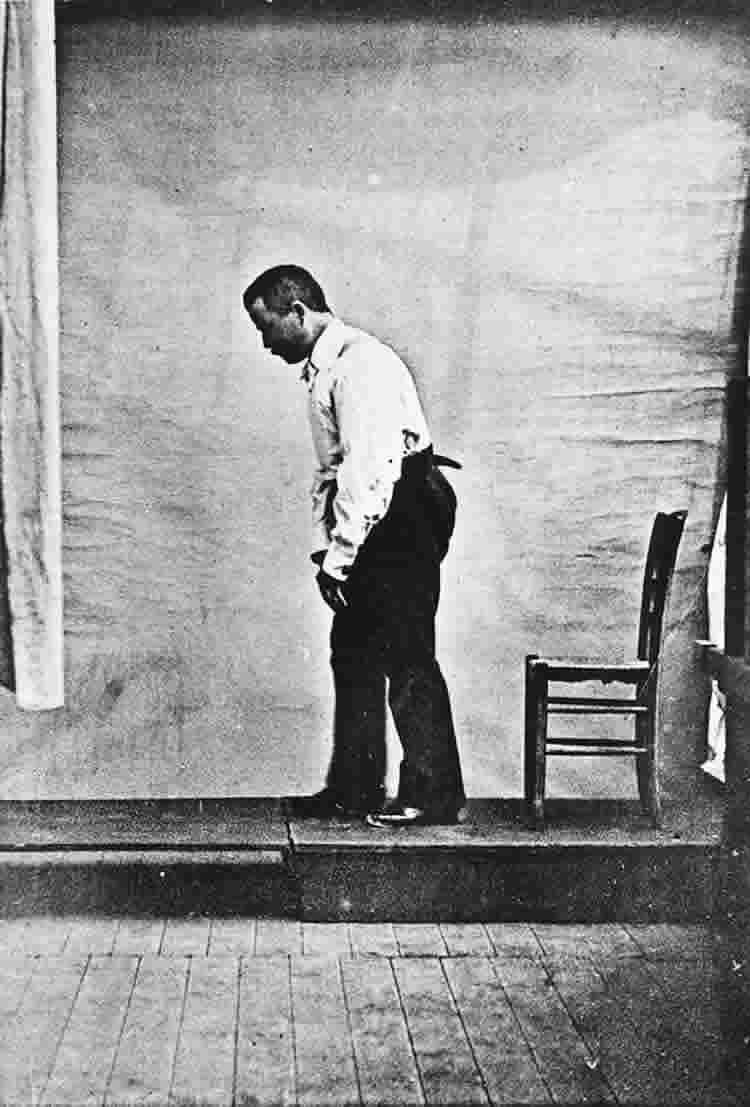Can Dementia Affect Walking

Answer Shuffling leaning patterns unsteady gait andor balance and decrease in coordination and physical strength are all fairly common symptoms of dementia often of the non-Alzheimers type.
Can dementia affect walking. Our gait can reveal more than just our personality - it may also predict our brain health. Obsessive or repetitive behaviour. A recent study published in Neurology suggests theres a link between walking speed and the onset of dementia in older adults.
Often these causes can be linked back to the brain. Dementia can affect areas of the brain that are responsible for movement and balance. 52 Walking disorders have previously been attributed to gait apraxia in a few single case reports of patients suffering from cortical degenerative diseases table 3.
Dementia inhibits the ability to walk. They may gradually lose their ability to walk stand or get themselves up from the chair or bed. Studies Looking at the Link between Dementia and Walking Difficulties.
Dementia is likely to have a big physical impact on the person in the later stages of the condition. If dementia becomes severe it can cause other symptoms including. In some cases disorders of the brain that have progressed quite far can cause a loss of balance.
There are many reasons that people can start to lose their balance as they get older. Its often difficult to tell that someone has early stage dementia just by. Its not uncommon for people with early dementia to walk for more than a mile at a time and appear to have completely normal functioning.
However research increasingly shows that others with early-stage dementia do have some changes in their gait. By exhibiting unique impairment signatures through gait testing the link between dementia and walking offers promise as an early indicator of cognitive decline. Disturbed or altered sleep patterns.

However some early-stage diseases can also cause a loss of balance.
Can dementia affect walking. Dementia is likely to have a big physical impact on the person in the later stages of the condition. Gait apraxia should be considered as a possible cause of walking difficulties when there are walking abnormalities that cannot otherwise be accounted for in patients with moderate Alzheimers disease or indeed other dementias. Disturbed or altered sleep patterns.
With walking getting out of the car etc she would ask. Its not uncommon for people with early dementia to walk for more than a mile at a time and appear to have completely normal functioning. In earlier stages or even before other dementia symptoms develop losing balance while standing or walking can indicate an increased potential to develop Alzheimers.
In the early stages of Alzheimers physical ability remains largely intact. Her problems were less shuffling and more how to do it. Studies Looking at the Link between Dementia and Walking Difficulties.
Alzheimer Scotland has produced When People with Dementia Walk Guidance for Carers PDF 104KB offering some useful advice. Dementia inhibits the ability to walk. A new study suggests that people with Lewy body dementia and Alzheimers have distinct walking patterns that may match cognitive and.
By exhibiting unique impairment signatures through gait testing the link between dementia and walking offers promise as an early indicator of cognitive decline. Many individuals affected by Alzheimers and other types of dementia gradually lose the ability to walk and perform everyday tasks. Often these causes can be linked back to the brain.
One meta-analysis involving nearly 10000 participants found that slow or decreased walking pace was significantly associated with an increased risk for dementia and cognitive decline in geriatric populations. However research increasingly shows that others with early-stage dementia do have some changes in their gait. A decline in walking speed over an extended period of time was found to predict cognitive impairment.

Another dementia study at the University of Pittsburgh found that those who took walks increased the size of their hippocampus - the part of the brain that controls new memories -.
Can dementia affect walking. Dementia can affect areas of the brain that are responsible for movement and balance. With walking getting out of the car etc she would ask. Complete loss of short-term and long-term memory.
Small or large strokes may also affect the basal ganglia and its connections leading to these same difficulties in walking in some patients with vascular dementia. In earlier stages or even before other dementia symptoms develop losing balance while standing or walking can indicate an increased potential to develop Alzheimers. Often these causes can be linked back to the brain.
Dementia can cause poor balance at several stages. An article published in Neurology online February 21 2018 adds to this body of research by showing how a simple analysis of how people walk. However research increasingly shows that others with early-stage dementia do have some changes in their gait.
Walking regularly can reduce the risk of blocked blood flow and therefore lower the risk of developing dementia. In the early stages of Alzheimers physical ability remains largely intact. Dementia is likely to have a big physical impact on the person in the later stages of the condition.
One meta-analysis involving nearly 10000 participants found that slow or decreased walking pace was significantly associated with an increased risk for dementia and cognitive decline in geriatric populations. Increased risk of falls. Our gait can reveal more than just our personality - it may also predict our brain health.
Many individuals affected by Alzheimers and other types of dementia gradually lose the ability to walk and perform everyday tasks. Dementia can damage the brain in various ways and this includes mobility and motor skills. Dementia inhibits the ability to walk.









